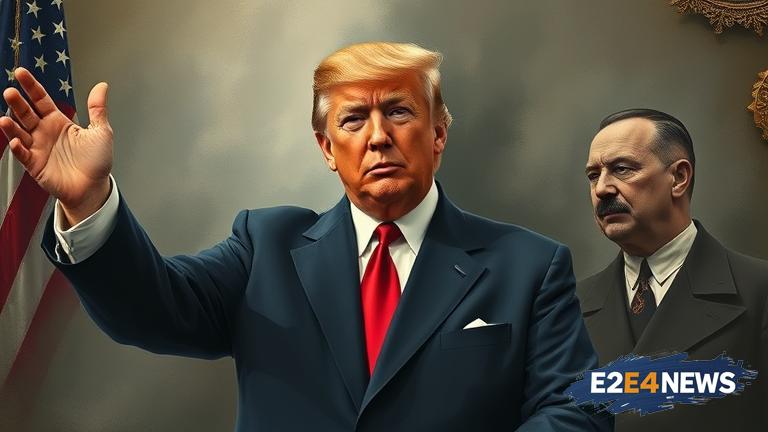In a shocking statement, Democratic Representative Jasmine Crockett has drawn parallels between former US President Donald Trump and Nazi leader Adolf Hitler. The comparison was made in the context of the ongoing controversy surrounding Jeffrey Epstein, a convicted sex offender with ties to several high-profile individuals, including Trump. Crockett’s remarks have sparked widespread outrage, with many criticizing her for trivializing the atrocities committed by Hitler. The representative’s comments were made during a discussion about Epstein’s connections to powerful figures and the alleged cover-ups surrounding his crimes. Crockett argued that Trump’s actions and behavior are reminiscent of Hitler’s rise to power, citing the former president’s divisive rhetoric and alleged disregard for the rule of law. However, many have denounced Crockett’s comparison as hyperbolic and insensitive, pointing out that Trump’s policies and actions, although controversial, do not equate to the systematic genocide and human rights abuses perpetrated by the Nazi regime. The Epstein controversy has continued to unfold, with new revelations about the extent of his network and the involvement of prominent individuals. As the investigation progresses, lawmakers like Crockett are under increasing pressure to hold those responsible accountable. Despite the backlash, Crockett has defended her comments, stating that she intended to highlight the dangers of authoritarianism and the erosion of democratic norms. The incident has also sparked a broader debate about the use of historical analogies in contemporary politics, with some arguing that such comparisons can be useful for illustrating the risks of extremist ideologies, while others see them as inflammatory and unhelpful. As the US navigates its current political landscape, the Crockett-Trump-Hitler controversy serves as a reminder of the deep divisions and sensitivities that exist within the country. The incident has also raised questions about the role of social media in amplifying provocative statements and the responsibility of public figures to consider the impact of their words. Furthermore, the comparison has been seen as a reflection of the growing concerns about the state of American democracy and the need for elected officials to promote civility and respect in their discourse. In response to the criticism, Crockett has emphasized her commitment to upholding democratic values and promoting accountability, while also acknowledging the need for more nuanced and thoughtful communication. The controversy surrounding Crockett’s comments is likely to continue, with many calling for greater clarity and sensitivity in public discourse. Ultimately, the incident highlights the challenges of navigating complex historical and political issues in a highly polarized environment. The US political landscape remains fraught with tension, and the Crockett-Trump-Hitler controversy is just one example of the many challenges that lawmakers and citizens alike must confront in the pursuit of a more just and equitable society.
